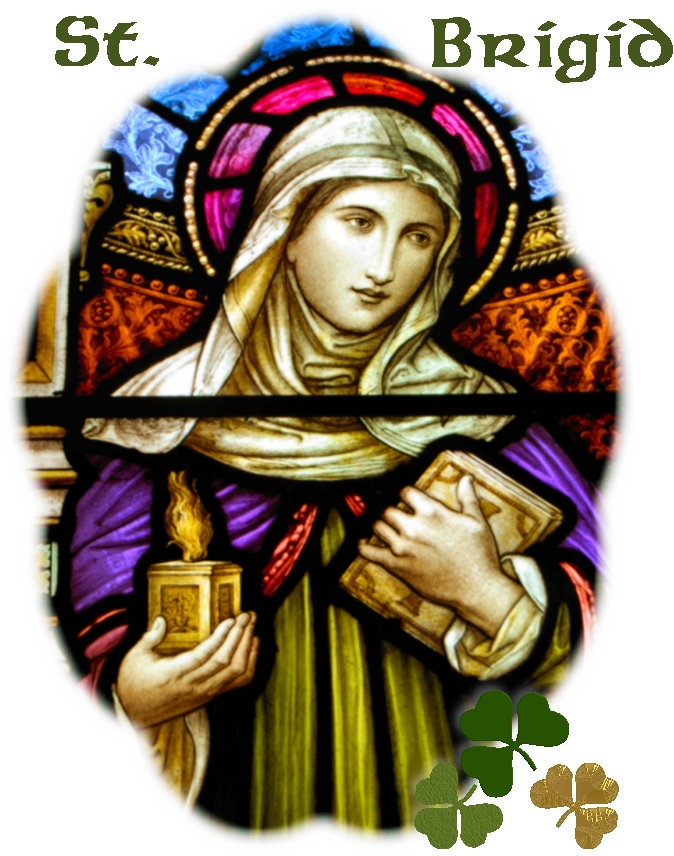
St. Brigid of Ireland
Everything that St. Brigid would ask of God was granted her at once. For this was her desire: to satisfy the poor, to expel every hardship, to spare every miserable man. Now there never hath been anyone more bashful or more modest or more gentle or more humble or more dsicerning and more harmonious that St. Brigid. In the sight of other people she never washed her hands or her feet or head. She never looked at the face of man. She never spoke without blushing. She was abstemious, innocent, prayerful, patient: and she was glad in God's Commandments; she was firm yet forgiving and loving; she was a cinsecrated casket for keeping Christ's Sacred Body and His Precious Blood; she was a temple of God. Her heart and her mind were a throne of rest for the Holy Ghost, and she was single-hearted towards God; so compassionate towards the wretched and splendid in miracles and marvels that her name among created things is Dove among the bird, Vine among trees, Sun among stars . . . she is the prophetess of Christ, the Queen of the South and she is the Mary of Gael or Ireland . . .
--------------A writer in the "Leabhar Breac"
So strong was the respect and
reverence for this holy lady that she became the patroness of parishes,
towns, and counties, not only in Ireland, but all across Europe. During
the age of Chivalry, she was so revered as a model for women of every
age, that gentlemen, knights, and nobles began the custom of calling
their sweethearts, their Brides-----a custom that has
come down to this very day.
She was a convert from the Druid pagan religion and her Feast Day is February 1.
St. Brigid, please pray for us.
VIEW THE FULL STAINED GLASS IMAGE
HOME------------------THE ROSARY
www.catholictradition.org/Children/st-brigid.htm
